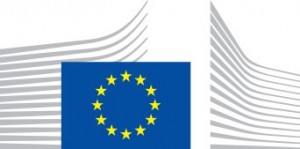Spring 2020 Economic Forecast: Bulgaria’s real GDP is projected to contract by over 7% in 2020
The strength of Bulgaria’s economy and the positive external and fiscal balances before the outbreak of COVID-19 should help it recover from the large economic shock caused by the pandemic. Unemployment is already increasing, albeit from historic lows, even though government support is cushioning the blow to the labour market. Investment is projected to fall sharply in 2020 and to recover partially in 2021. Household consumption, improvements in the labour market and a return of export growth should drive a recovery in 2021.
Sharp recession followed by a partial recovery
At the onset of the COVID-19 pandemic, economic conditions in Bulgaria were favourable. At 3.4%, GDP growth in 2019 was robust for the fifth year in a row, mainly driven by growing household consumption. This positive trend has been interrupted by the COVID-19 outbreak. Bulgaria’s real GDP is projected to contract by over 7% in 2020, largely due to the adverse impact of measures taken to contain the spread of the pandemic following the declaration of a state of emergency on 13 March 2020. The sectors directly subject to these measures (e.g. retail, transport, hotels and restaurants, art and entertainment) are estimated to be operating at 30-40% of their capacity, while important negative spillover effects are also expected on the rest of the economy.
A rebound in economic activity is expected in the second half of 2020 with the gradual lifting of the confinement measures. Domestic demand is projected to strengthen already in the third quarter and should continue growing in the fourth.
Government measures to protect income and employment should support household consumption, which is nevertheless expected to fall by almost 6% in 2020. Investment is set to shrink by 18% in 2020 on account of current and expected financial hardship at the firm level due to drastically reduced cash flows. Liquidity support schemes are expected to mitigate chain defaults but not to stimulate new investment.
The slowdown of international economic activity has had a negative effect on Bulgaria’s exports since end-2019. In 2020, a broad-based fall in exports of more than 13% is expected, mainly due to the worldwide impact of the COVID-19 pandemic. Imports are expected to contract by more than 12%, mainly due to the large fall in investment but also due to the decline in exports, which have a significant import content.
In 2021, growth is forecast to rebound to around 6%, partially offsetting the decline in 2020. Private consumption is set to drive the recovery, as the labour market is expected to improve. Growth is also forecast to benefit from an assumed rebound in exports. Investment, however, is expected to follow a slower recovery path with an annual growth of only 1%, as high uncertainty and still weak business finances are set to supress and postpone investment activity.
Source: European Commission





